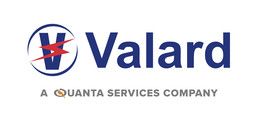Huawei Canada has an immediate permanent opening for a Principal Software Engineer.
About the team:
Established in 2014, the Distributed Scheduling and Data Engine Lab is Huawei Cloud's technical innovation center in Canada. The lab focuses on researching and developing advanced cloud technologies, supporting the productization and iterative optimization of its technical achievements. Current research areas include cloud multi-agent system, cloud native databases, infrastructure resource scheduling and prediction, cloud-native middleware, and user experience studies. The lab fosters a robust technical environment, allowing collaboration with industry experts to create a highly competitive cloud platform.
About the job:
Lead end-to-end design and deployment of multi-agent systems on cloud platforms, explore and implement agent coordination strategies, such as reinforcement learning, hierarchical planning, or emergent communication.
Design, build, and scale next-generation AI Multi-Agent systems to enable intelligent collaboration, planning, and autonomous execution.
Stay ahead of AI agent research trends, integrating new models, techniques, and orchestration methods to push technical boundaries.
Collaborate closely with a global team of experts, including AI researchers, to integrate advanced AI features into existing solutions.
Analyze, investigate, and implement GenAI solutions for Cloud Service features and technologies focusing on Agentic Orchestration and Agent Builder frameworks.
Conduct technical research and implementation and assist in development and deliveries.
This role involves overseas travel
About the ideal candidate:
2+ years of experience in AI Agent / Multi-Agent systems, Deep Learning, NLP, and Generative AI, with hands-on experience on cloud platforms (AWS, Azure, etc.)
Proven experience designing or orchestrating AI Agent workflows, including Agentic Orchestration and Multi-Agent Collaboration.
Expertise in Deep Learning for NLP, including architectures like RNN, LSTM, GRU, and frameworks such as PyTorch or TensorFlow.
Proficiency in Generative AI techniques — Transformers, LLM fine-tuning, (Graph) RAG, and Vector Databases.
Deep understanding of Large Language Models (LLMs) and their application in agentic reasoning and automation.
Strong foundation in algorithms, data structures, and object-oriented programming, with proficiency in Python.
Excellent communication and organization skills, attention to detail, and with the ability to manage complex projects in a fast-paced environment.
Master’s degree in computer science, Artificial Intelligence, or a related field; PhD degree is an asset.

















